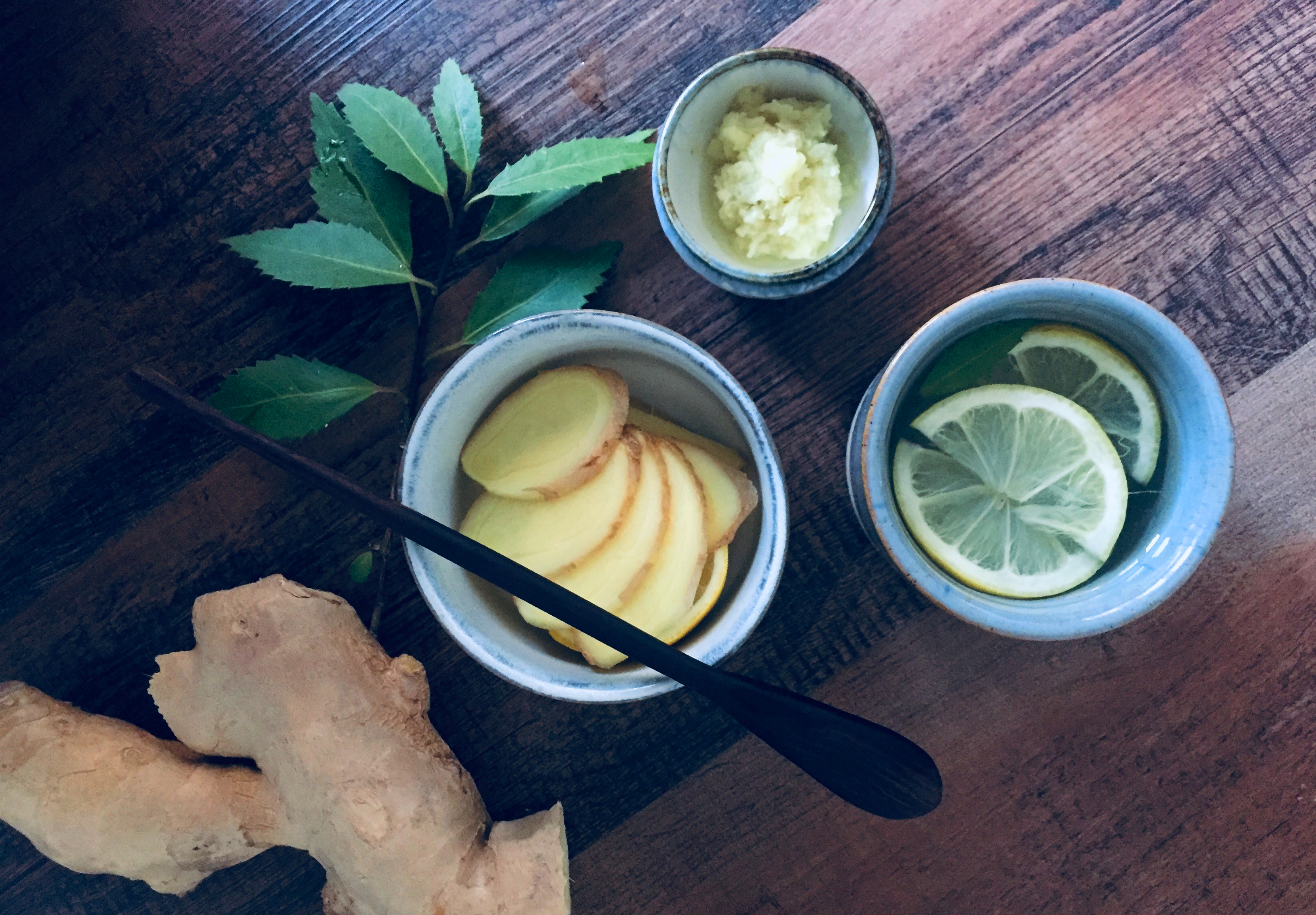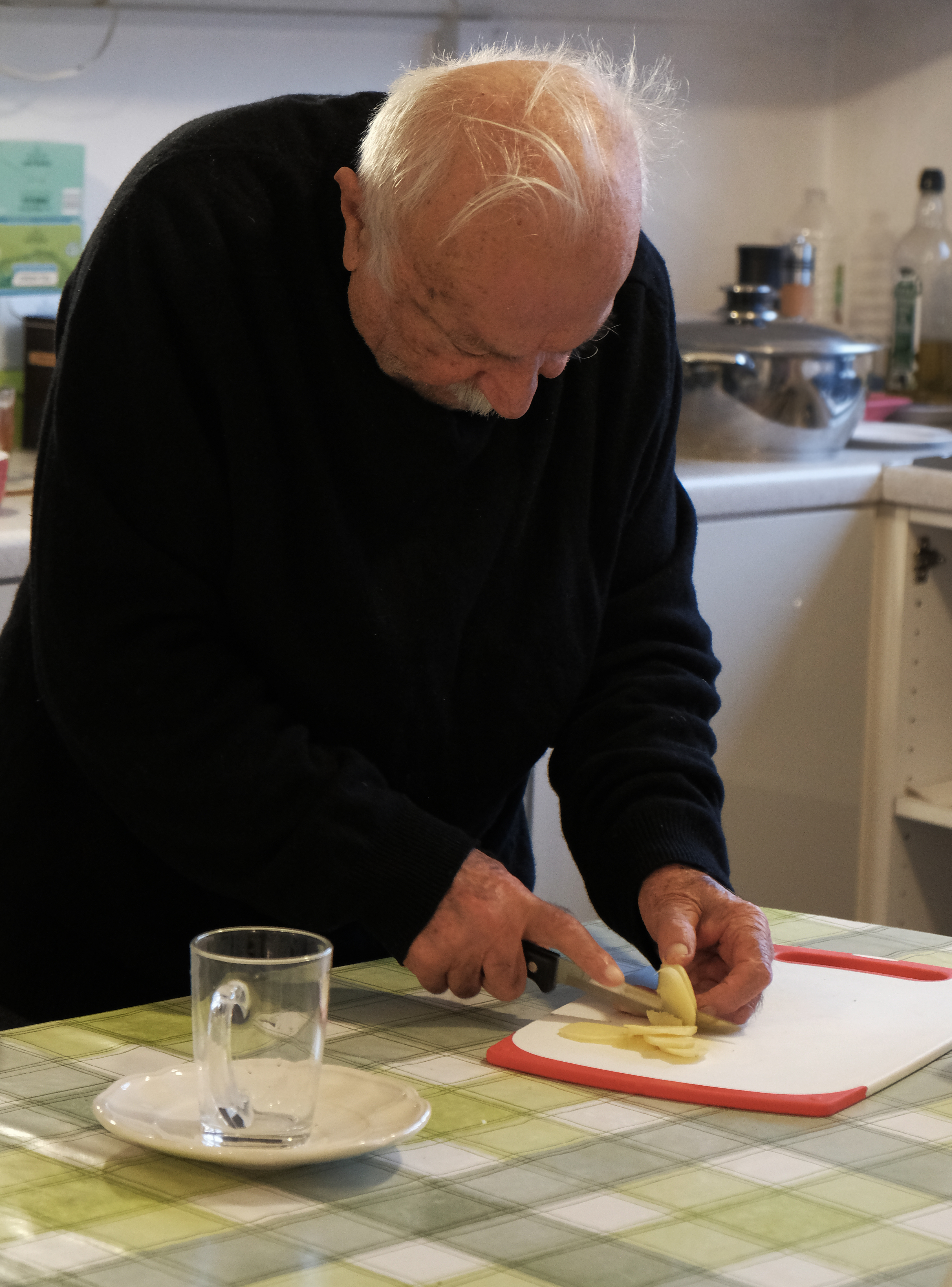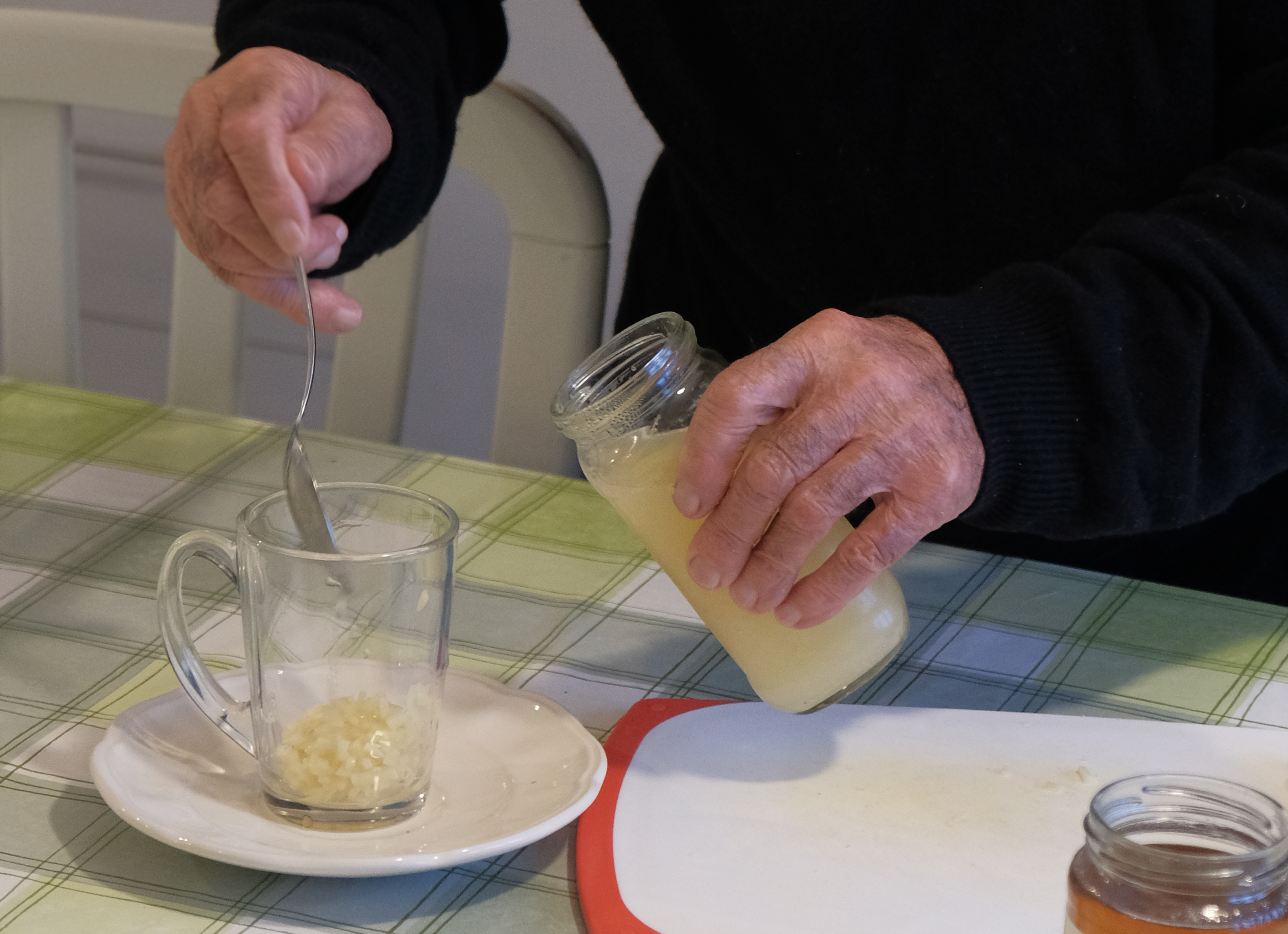
Being a man of habit, routine and true organisational skills, every morning without fail my dad prepares a hot elixir of grated ginger, lemon juice and a teaspoon of honey to drink. Black tea seems to have disappeared from his daily horizon, an act of sacrilege by most Persian standards! But he has no desire to keep tradition for the sake of it. He has always been a soul open to change and progress throughout life. His enthusiasm for this warming drink has no bounds, as he never hesitates to share (particularly with his GP!), his determined belief that this morning ritual has helped protect him over the winter months and really the last year from general ill health, including colds and joint pain. So is all this in his mind? Or can ginger really provide some disease fighting armour? Yes, I would say much of the learning both traditional (including ayurvedic, traditional Chinese and western herbal medicine) and contemporary highlights how potent this herb can be. Its capacities are vast!
Ginger is predominantly considered as an effective remedy in gastrointestinal conditions, capable of easing of nausea, sickness and indigestion. However the active components in ginger (Gingerols and Shagols) have been shown to posses antimicrobial and antiviral properties. More impressively its ability to modulate signalling factors related to cell growth and survival as well as immune regulation, ginger has been an important topic of research in many types of gastrointestinal and inflammatory conditions, including its potential role in the treatment of specific gastrointestinal cancers.
Working with my clients in clinic, ginger is a herb I confidently and frequently recommend as part of an anti-inflammatory protocol.
https://www.ncbi.nlm.nih.gov/pmc/articles/PMC4106649/
https://www.ncbi.nlm.nih.gov/pmc/articles/PMC3665023/
https://new.hindawi.com/journals/grp/2015/142979/
Some easy ways to include this wondrous herb in your cooking: add freshly grated to warm drinks, curries, stews and soups. Add to salad dressings and marinades.
Contraindications: due to its anti-platelet and anti-clotting properties, please consult your GP if you are taking blood thinning medications.








